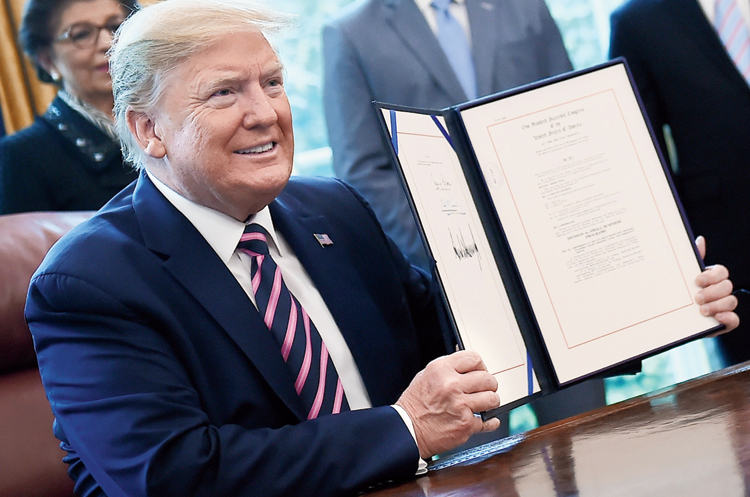President Trump’s self-assessment has been consistent.
“I’m, like, a very smart person,” he assured voters in 2016.
“A very stable genius,” he ruled two years later.
“I’m not a doctor,” he allowed on Thursday, pointing to his skull inside the White House briefing room, “but I’m, like, a person that has a good you-know-what”.
Trump’s performance that evening, when he suggested that injections of disinfectants into the human body could help combat the coronavirus, did not sound like the work of a doctor, a genius, or a person with a good you-know-what.
Even by the turbulent standards of this President, his musings on virus remedies have landed with uncommon force, drawing widespread condemnation as dangerous to the health of Americans and inspiring a near-universal alarm that many of his past remarks — whether offensive or fear-mongering or simply untrue — did not.
Trump’s typical name-calling can be recast to receptive audiences as mere “counterpunching”. His impeachment was explained away as the dastardly opus of overreaching Democrats. It is more difficult to insist that the man floating disinfectant injection knows what he’s doing.
The reaction has so rattled the President’s allies and advisers that he was compelled over the weekend to remove himself from the pandemic briefings entirely, at least temporarily accepting two fates he loathes: giving in to advice (from Republicans who said the appearances did far more harm than good to his political standing) and surrendering the mass viewership he relishes.
Some at the White House have expressed frustration that the issue has lingered. “It bothers me that this is still in the news cycle,” Dr Deborah Birx, the coronavirus response coordinator, told CNN on Sunday, adding, “I worry that we don’t get the information to the American people that they need, when we continue to bring up something that was from Thursday night.”
Governor Larry Hogan of Maryland, a Republican who has been willing to speak sceptically about Trump’s virus leadership, said on ABC’s This Week on Sunday that it “does send a wrong message” when misinformation spreads from a public official or “you just say something that pops in your head”. Asked to explain the President’s words, Hogan said, “You know, I can’t really explain it.”
No modern American politician can match Trump’s record of false or illogical statements, which has invited questions about his intelligence. Insinuations and gaffes have trailed former President George W. Bush, former Vice- President Dan Quayle and Joseph R. Biden Jr., now the presumptive Democratic nominee, among many others. But Trump’s stark pronouncement — on live television, amid a grave public health crisis, and leaving little room for interpretation — was at once in a class of its own.
Still, for weeks, the President’s political team has been strikingly explicit about its intended messaging against Biden: presenting him as a doddering 77-year-old not up to the rigors of the office — and setting off on the kind of whisper campaign that does not bother with whispers.
On Sunday, the Trump campaign made clear that the disinfectant affair would not disrupt its plans. “Joe Biden is often lost,” said Tim Murtaugh, a Trump campaign spokesman, “losing his train of thought during friendly interviews, even when he relies on written notes in front of him.”










